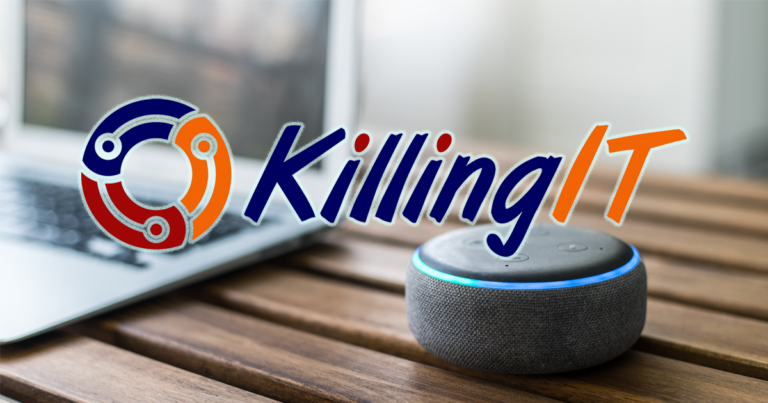Topic 1: Reverse mentoring in the technology industry increases understanding and opens opportunities for both sides of the mentor relationship
https://blog.hubspot.com/the-hustle/reverse-mentoring
Everyone knows a person of “a certain age” who is not as connected to or fluent with a new technology … even in the IT channel. And ironically, those people are much more likely to be senior executives in the business of IT. How will those highly experienced update their tech knowledge and bring new strategies to leveraging tech for business and for diversity in the industry? Talk to a youth.
See also: https://relaxfocussucceed.com/2022/06/millennials-and-gen-x-are-not-a-problem-to-be-dealt-with/
Topic 2: Apprenticeships are going into industries beyond the trades … are reinforcements on the way? Or are companies still insisting on only hiring “the best of the best” in tech roles?
https://www.axios.com/2022/08/22/apprenticeships
It’s well known that there are massive shortages of cybersecurity workers … at the same time as cyber threats are are escalating. How can the industry catch up? Certainly not by insisting on advanced credentials for candidates who need to do jobs that focus on mass quantity cyber threats. BTW: there’s a big difference between an “internship” and an “apprenticeship.”
https://www.protocol.com/newsletters/protocol-workplace/pwc-pulse-survey?rebelltitem=5#rebelltitem5
Companies are shifting from rapid hiring to layoffs … while still indicating they intend to hire. It’s a natural impulse to continuously improve the mix of talent in your workforce, but will this strategy of “only the best” ever catch up with cybersecurity needs?
Topic 3: Amazon is leaning into the healthcare industry … with some fairly predictable performance so far
https://www.washingtonpost.com/technology/2022/08/19/amazon-care-patient-safety-concerns/
The notion of a business model is fairly straightforward: what you do + who you do it for x how you do it = how you make money. Not too many variables, and every time someone says they’re going to use technology to revolutionize or disrupt an industry, what they really mean is that they will replace human labor with technology for one of the business model elements. To absolutely no one’s surprise, Amazon’s efforts to disrupt the healthcare industry are leading to less human involvement in healthcare delivery. Is that a good thing?
Sponsor Memo: Gozynta
Do you like getting paid? Then make it easy for your customers with Gozynta Payments.
Do you teach your customers not to click on links from strange domain names like mymsp.monkeypayments.com or slowbooks.com? Gozynta Payments uses your branding and domain name. No redirects. No confusion.
Gozynta Mobius is trusted by over a thousand MSPs to sync financial data. Their new product Gozynta Payments is built with the same care and empathy to make the payment process easy for your customers.








Although I agree with the notion that healthcare personal service is awful I’m also worried about the emerging trend of cherry picking the profitable bits and applying Amazonification. CVS, Walmart, Amazon, Cuban and a host of other for-profit companies are choosing to supply a limited set of services and will probably do it better. But then that leaves non-profit healthcare with the most expensive, least financially viable tasks. Tests make big money; elective surgery makes big money. Most of the rest are losers that are subsidized by the money making activities.
So let’s play this out. Money making firms cherry pick. You enter their system and then get to a point of, sorry we don’t save lives here. Now what happens? They send you to emergency? Emergency rooms are glorified first aid. So they stabilize you and send you on your way to bounce around through a system that has no cohesiveness and no “system of care”.
In another more optimistic scenario, perhaps the existing healthcare systems step up their game and do it better than the for-profit companies. Now we’re just left with an even more fractured healthcare system in which those that can afford it do and the rest go to Amazon.
I have a few Amazon Basics products that are sufficient for the task. But they are also clearly ripped off and cheapened versions of other products. Not sure that is what I want for my healthcare.
Good point, Amy.
Most people don’t consider that there are two immediate options: Either lower the price on a specific service, or supply a cheap (lesser) service. Both save money, but one leads to a lower level of care.
Amy – you are SPOT on target with what is wrong with this Amazon approach to the healthcare model. Reducing the cost of healthcare by lowering the quality (i.e. replacing nurses with chatbots or paying nurses less to serve more patients) will only have negative consequences for all parties (providers, consumers, payers). As Karl said, they could also reduce the cost by streamlining the system and leveraging technology to automate manual labor and allow specialists (nurse / doctors) to focus on actually providing care. But that second option requires a level of innovation where the outcome is better care for similar cost … and I doubt any of us believe that is Amazon’s intention.
In general, I am a big proponent of innovation for healthcare business models … because we spend more money for healthcare than any country on earth and get far lower quality services. This *should* be a place where technology can completely change the game and we can all win. But only if it comes from a place of “better healthcare for patients” rather than “higher profits for providers.” Intention makes all the difference.
I’ll be somewhat contrarian — “this was a great retail experience,” said no one ever about healthcare. Adding some customer service into any part of the chain is likely to be a positive move, and the vast majority of the entire healthcare experience is the very definition of awful. The American system IS profit driven, and to have profits you need customers, and any investment there will draw more customers… and then more revenue.
And in Amazon’s case, they can monetize that customer base better than the vast majority.
If it gets worse (and I can’t even imagine that), then does it push us to single payer? That also seems like a win.